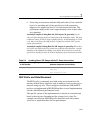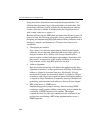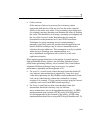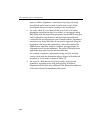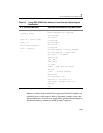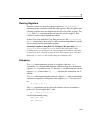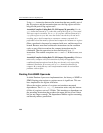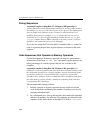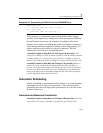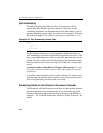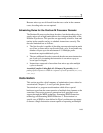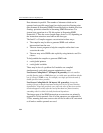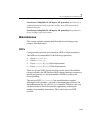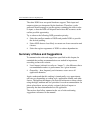
General Optimization Guidelines 2
2-89
Use movapd as an alternative; it writes all 128 bits. Even though this
instruction has a longer latency, the μops for
movapd use a different
execution port and this port is more likely to be free. The change can
impact performance. There may be exceptional cases where the latency
matters more than the dependence or the execution port.
Assembly/Compiler Coding Rule 54. (M impact, ML generality) Avoid
introducing dependences with partial floating point register writes, e.g. from
the movsd xmmreg1, xmmreg2 instruction. Use the movapd xmmreg1,
xmmreg2
instruction instead.
The movsd xmmreg, mem instruction writes all 128 bits and breaks a
dependence.
The
movupd from memory instruction performs two 64-bit loads, but
requires additional μops to adjust the address and combine the loads
into a single register. This same functionality can be obtained using
movsd xmmreg1, mem; movsd xmmreg2, mem+8; unpcklpd xmmreg1,
xmmreg2
, which uses fewer μops and can be packed into the trace cache
more effectively. The latter alternative has been found to provide several
percent of performance improvement in some cases. Its encoding
requires more instruction bytes, but this is seldom an issue for the
Pentium 4 processor. The store version of
movupd is complex and slow,
so much so that the sequence with two
movsd and a unpckhpd should
always be used.
Assembly/Compiler Coding Rule 55. (ML impact, L generality) Instead of
using movupd xmmreg1, mem for a unaligned 128-bit load, use movsd
xmmreg1, mem; movsd xmmreg2, mem+8;
unpcklpd xmmreg1,
xmmreg2
. If the additional register is not available, then use movsd
xmmreg1, mem; movhpd xmmreg1, mem+8.
Assembly/Compiler Coding Rule 56. (M impact, ML generality) Instead of
using
movupd mem, xmmreg1 for a store, use movsd mem, xmmreg1;
unpckhpd xmmreg1, xmmreg1; movsd mem+8, xmmreg1 instead.



